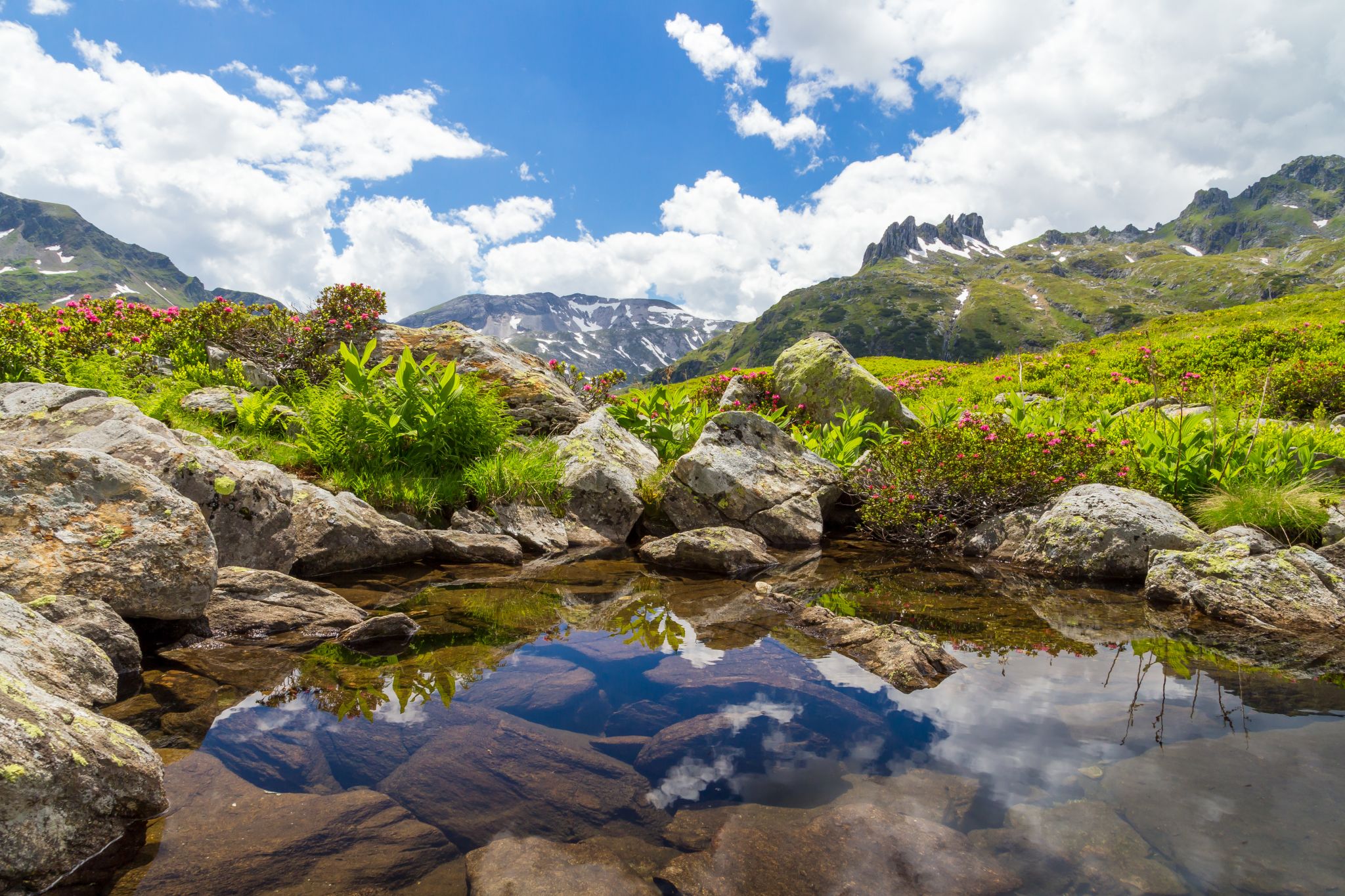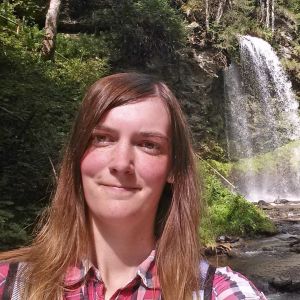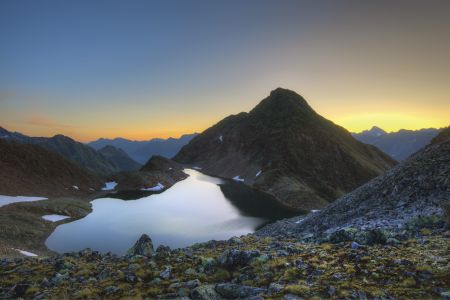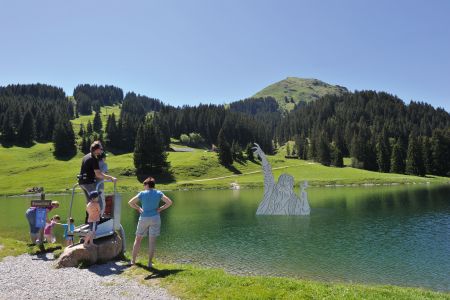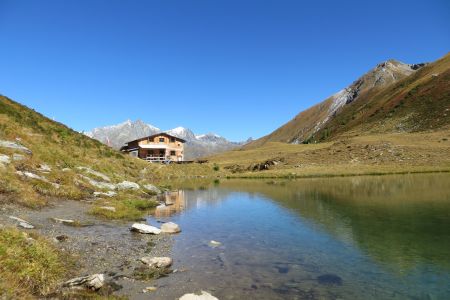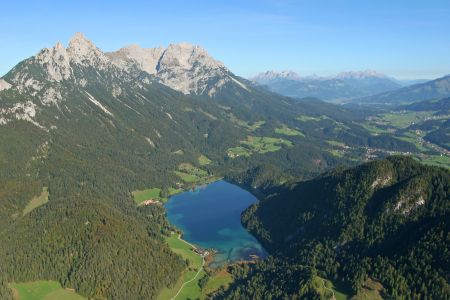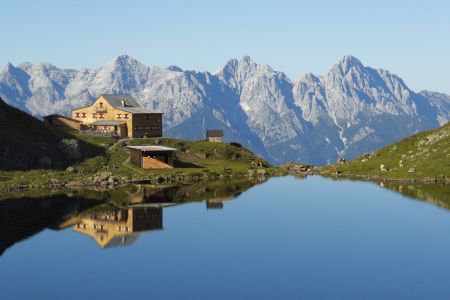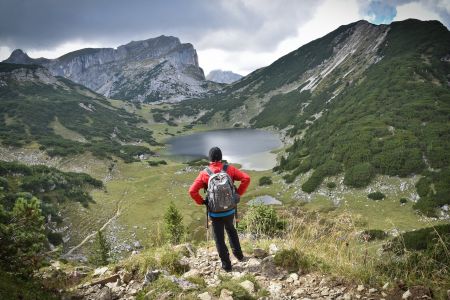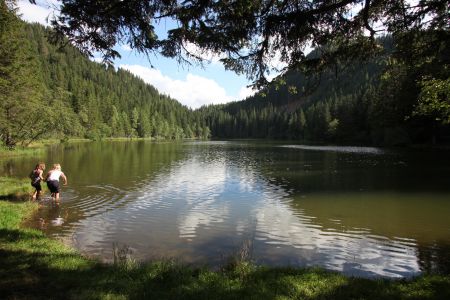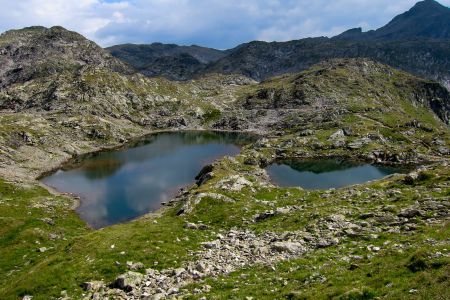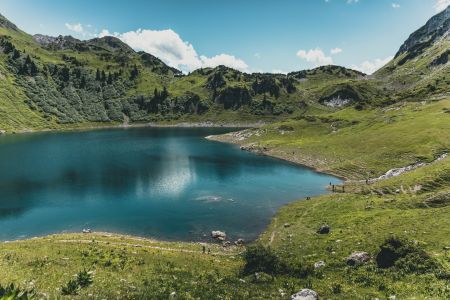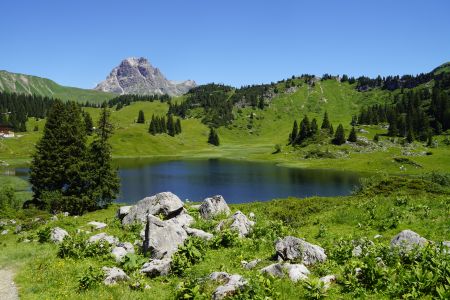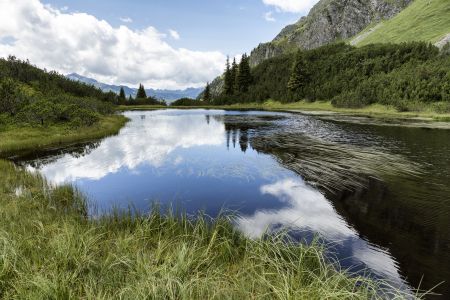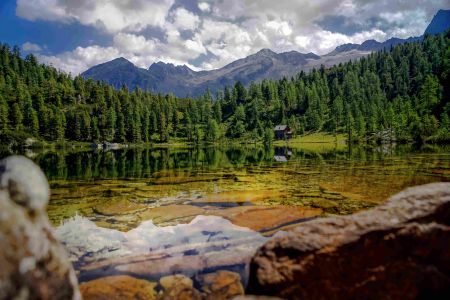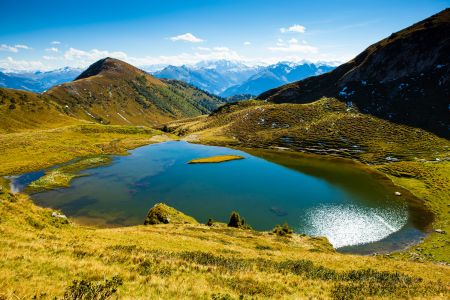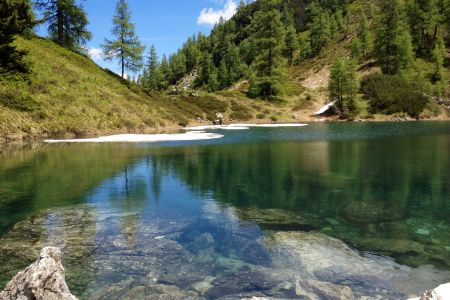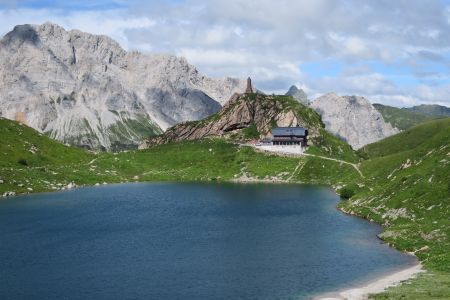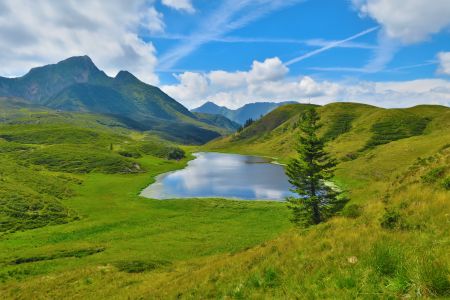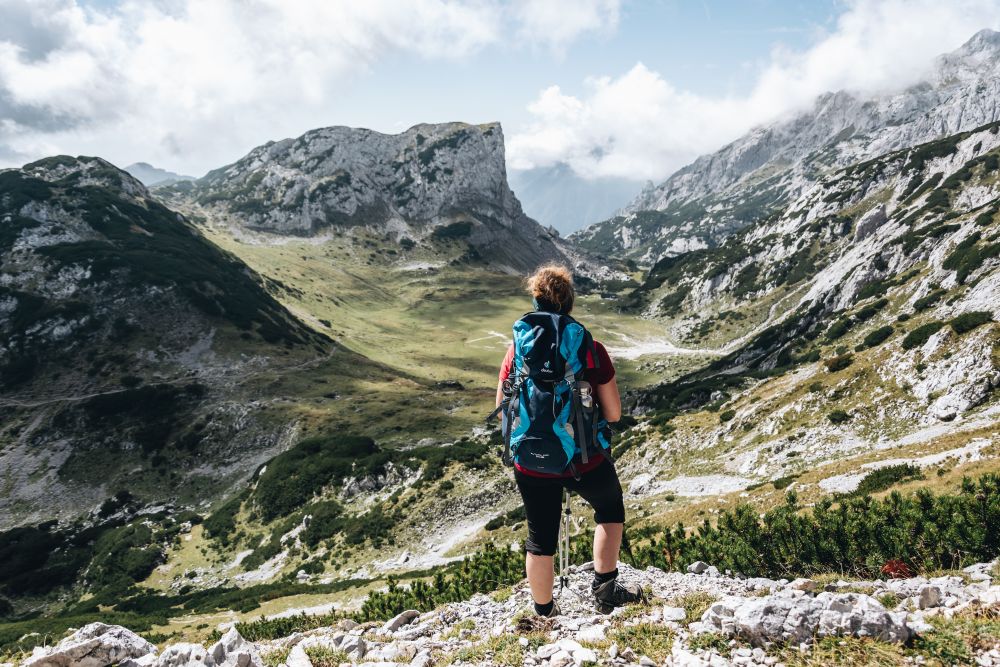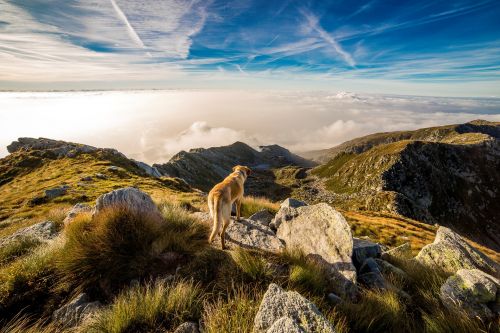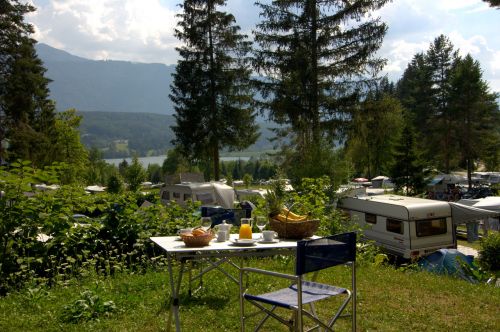Austria’s hiking villages now enable visitors to find and explore the most beautiful mountain lakes and tarns in Austria.
Crystal clear and luminous, ranging from emerald green to glimmering silver, Austria’s mountain lakes are scattered among verdant Alpine pastures or lay nestled among the rocks and peaks. A perfect summer day in the mountains isn’t complete without a refreshing stop beside one of Austria’s beautiful mountain lakes amid the breathtaking scenery. And discovering one mountain lake will leave you wanting to find more.
![]()
Most of Austria’s lakes are of drinking water quality.
![]()
In total, Austria has more than 25,000 bodies of water.
![]()
The Carinthia region alone has more than 1270 lakes.

Schwarzsee lake above Sölden in the Ötztal valley is one of Austria’s highest mountain lakes.
Austria’s mountain lakes An overview
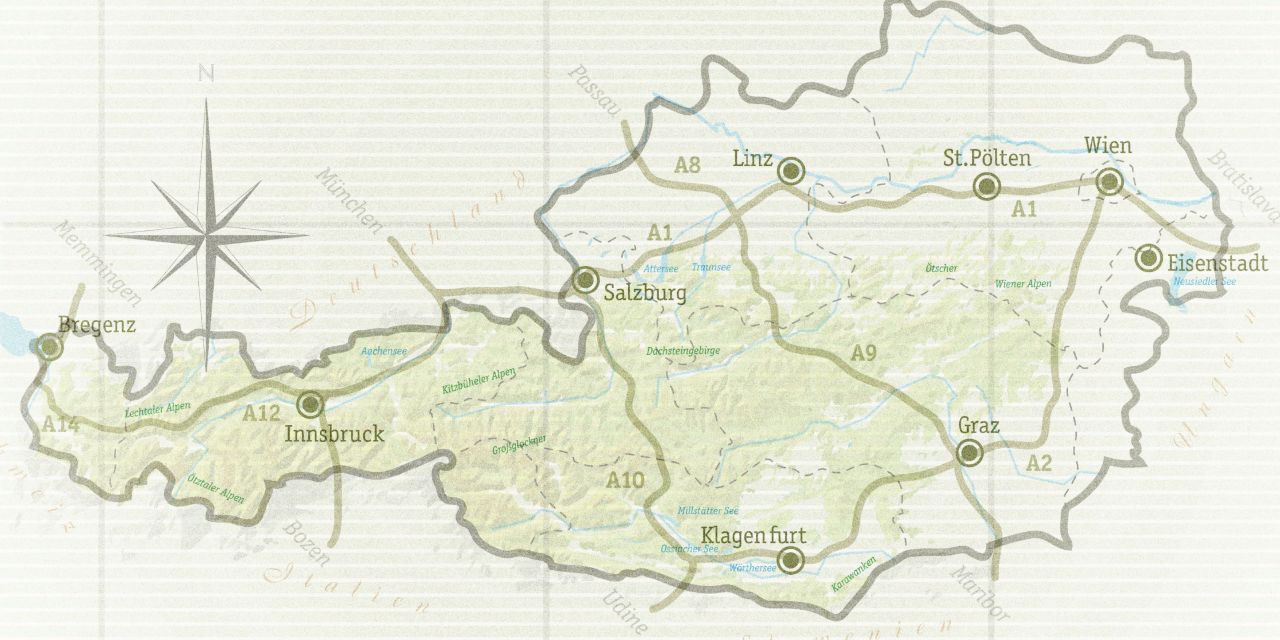
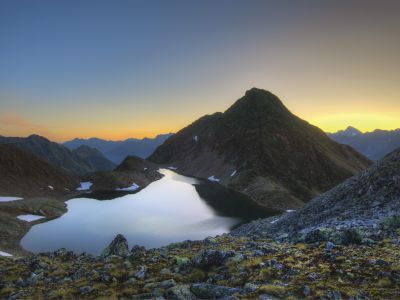
Schwarzsee lake above Sölden in the Ötztal valley is one of Austria’s highest mountain lakes.

Piburger See lake lies at the heart of the impressive mountain landscape of the Ötztal Alps and the Ötztal nature park.
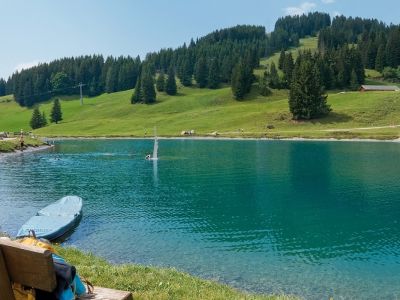
Filzalmsee lake in the Brixental valley of the Kitzbühel Alps lies at 1300 metres altitude.
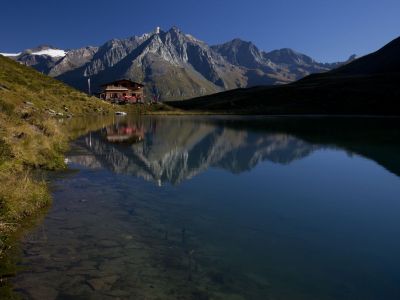
Bergersee lake in the Virgental valley is situated in the Grossglockner National Park.
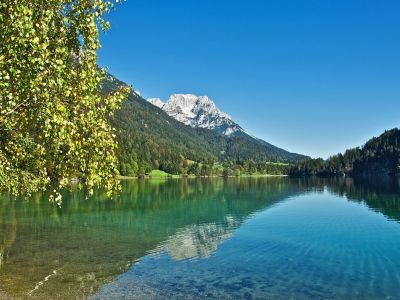
Hintersteiner See lake is situated in the Wilder Kaiser nature reserve.
Astbergsee lake can be found at 1200 m altitude on the flanks of Astberg mountain above Going.
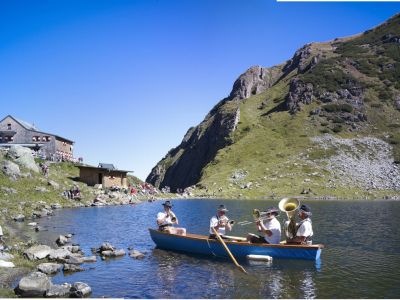
Wildseelodersee lake lies in the Pillersee valley of the Kitzbühel Alps.
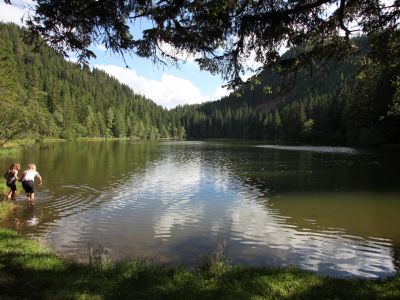
Auerlingsee lake lies at the foot of the Grebenzen mountains.
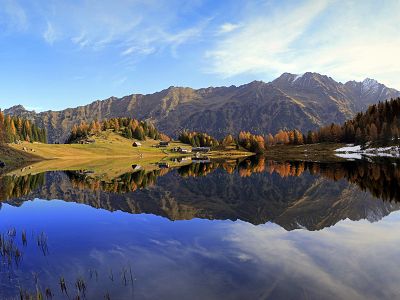
Duisitzkarsee lake is situated in the Obertal valley in Schladming.
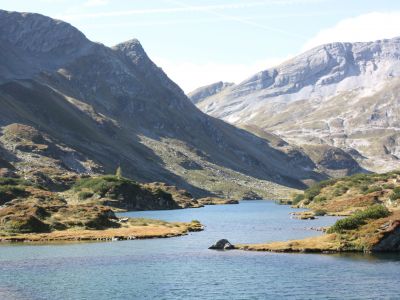
The Unterer and Oberer Giglachsee lakes count among the most popular hiking destinations in the Schladming hiking region.
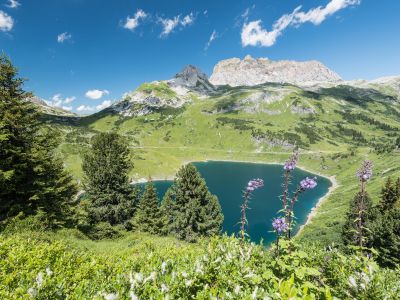
Formarinsee lake is located in Lech Zürs am Arlberg.
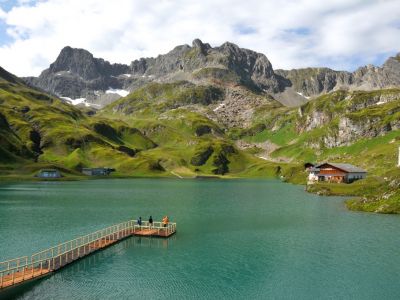
Zürser See lake is a natural lake surrounded by the high peaks of the Lech Zürs hiking region.
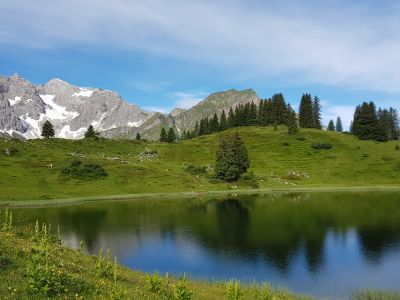
Körbersee lake is situated in Warth-Schröcken and is considered one of Austria’s most beautiful locations.
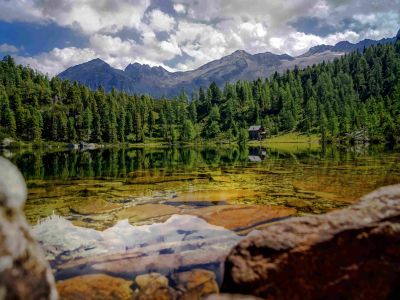
Reedsee lake lies in Gastein, in the Hohe Tauern National Park near Salzburg.
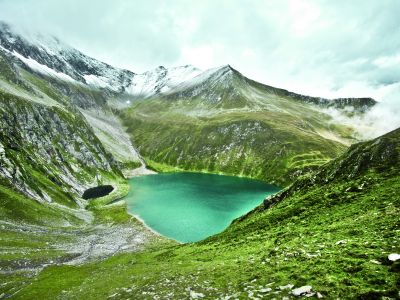
Located in the Hohe Tauern National Park, Seebachsee lake is nestled into the Obersulzbachtal valley near Neukirchen am Grossvenediger.
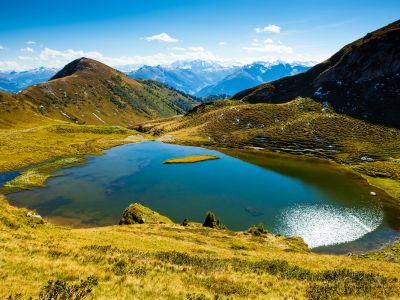
Hundsteinsee lake lies in the Hochlönig region, on the summit of one of the highest grass-covered mountains of Europe.
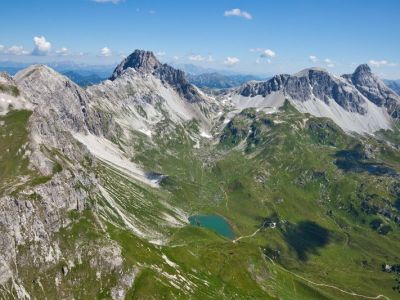
The smallest of the mountain lakes in Wagrain-Kleinar is the Blauer See just below Ennskraxn mountain – the main summit in Kleinarl.
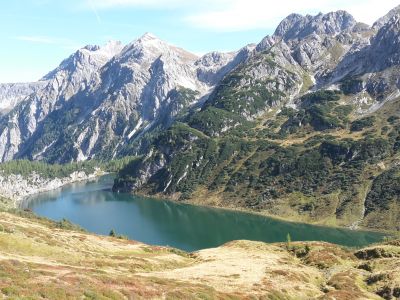
Situated at 1762 m altitude, Tappenkarsee lake is one of the highest mountain lakes in the Eastern Alps.
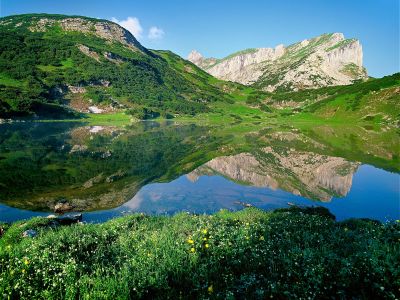
Zireiner See lake is also known as the blue eye of the Rofan mountains.
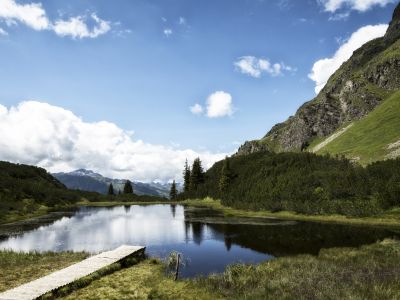
Wiegensee lake lies at 1900 m altitude and is surrounded by 65 hectares of alpine moorland.
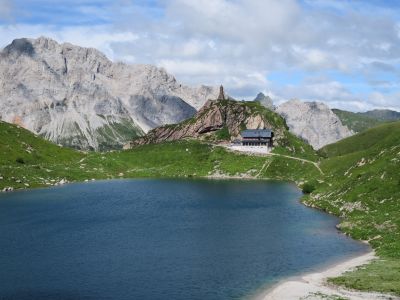
Wolayersee lake is in the Carnic Alps at 1960 m altitude.
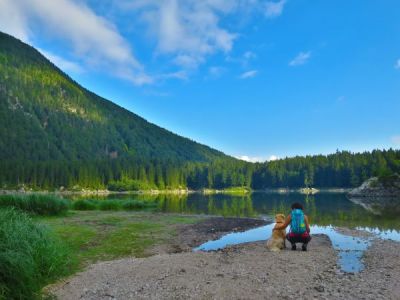
Zollnersee lake is a natural gem located in Dellach im Gailtal.
Special mountain lakes Crystal clear and refreshing – feel the invigorating energy of the water
Mountain Lakes in Tirol
Mountain lakes in Styria
Mountain lakes in Vorarlberg
Mountain lakes in Salzburg
Mountain lakes in Carinthia
Mounain lakes in Tirol
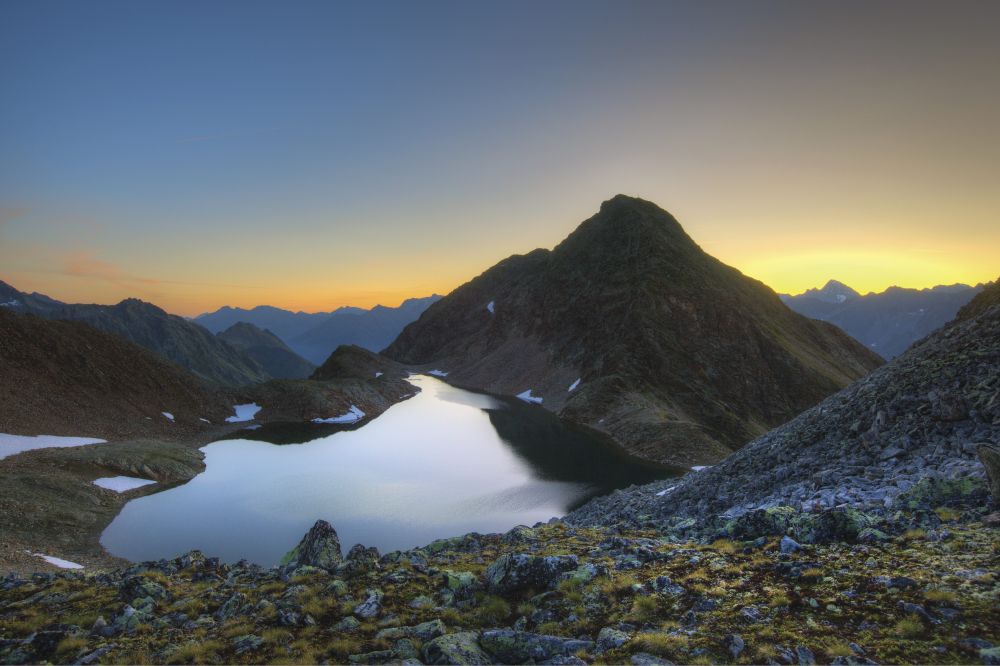
Ötztal – Schwarzsee lake (highest altitude mountain lake) & Piburger See lake
At 2792.50 m altitude, Schwarzsee lake above Sölden in the Ötztal valley is one of Austria’s highest mountain lakes. It lies nestled between the slopes of the Schwarzkopf (3060 m), Punkt (2933 m) and Rotkogel mountains. With a surface area of 3.5 ha, it is one of the largest high-altitude lakes in the Alps. An ideal starting point for a hike to Schwarzsee lake is the top station of the Giggijochbahn cable car. Follow the wide path across alpine pastures for about 1 1/2 hours to reach the Rotkogeljochhütte mountain hut (2666 m). From there, it’s another 30 minutes’ walk along a narrow trail to Schwarzsee lake. The lake is covered with ice for around 7 – 8 months of the year. Even in the summer months, the water temperature barely reaches 4 °C.
Piburger See lake
Piburger See lake lies at the heart of the impressive mountain landscape of the Ötztal Alps and the Ötztal nature park. The surrounding peaks are reflected in its still waters, which reach a balmy 25 °C in summer, despite its elevated location at 915 m altitude. This makes Piburger See one of Tirol’s warmest mountain lakes and a popular destination accessed by splendid hiking trails from Oetz, Sautens, Habichen and Piburg. Visit Restaurant Piburger See on the lake shore for boat hire and freshly prepared trout dishes – ideal for a pleasant extended pit stop. With 20 km of winter hiking trails nearby, Piburger See lake also attracts plenty of visitors during the winter months.
Brixental valley – Filzalmsee lake
Filzalmsee lake in the Brixental valley of the Kitzbühel Alps lies at 1300 metres altitude. This is an ideal location for observing rare plant and animal species. A protected habitat area with observation peep box offers fascinating insights into the underwater world, while themed trails highlight further points of interest.
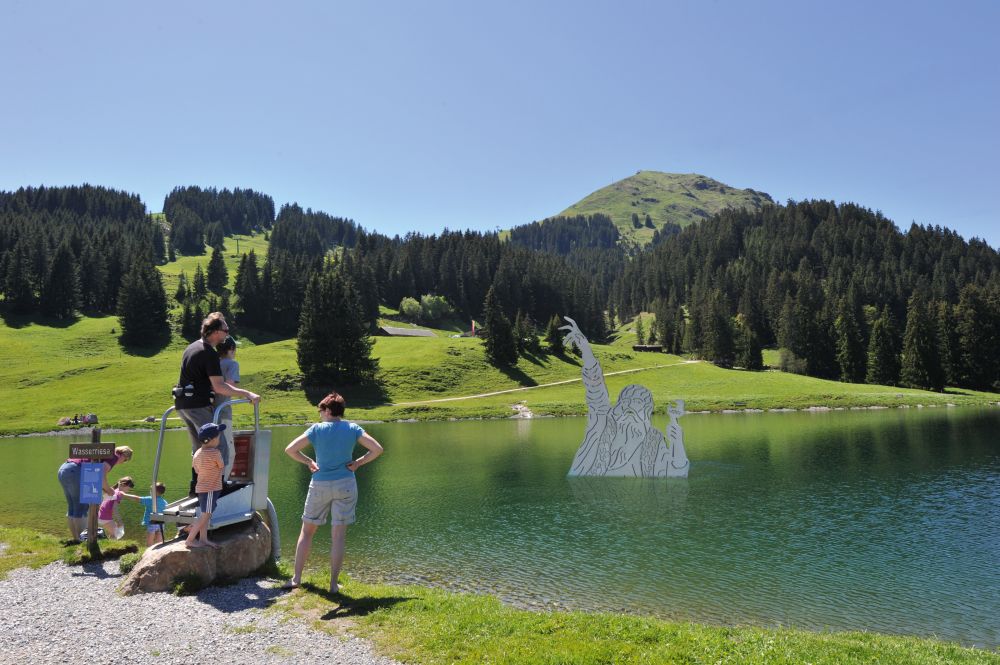
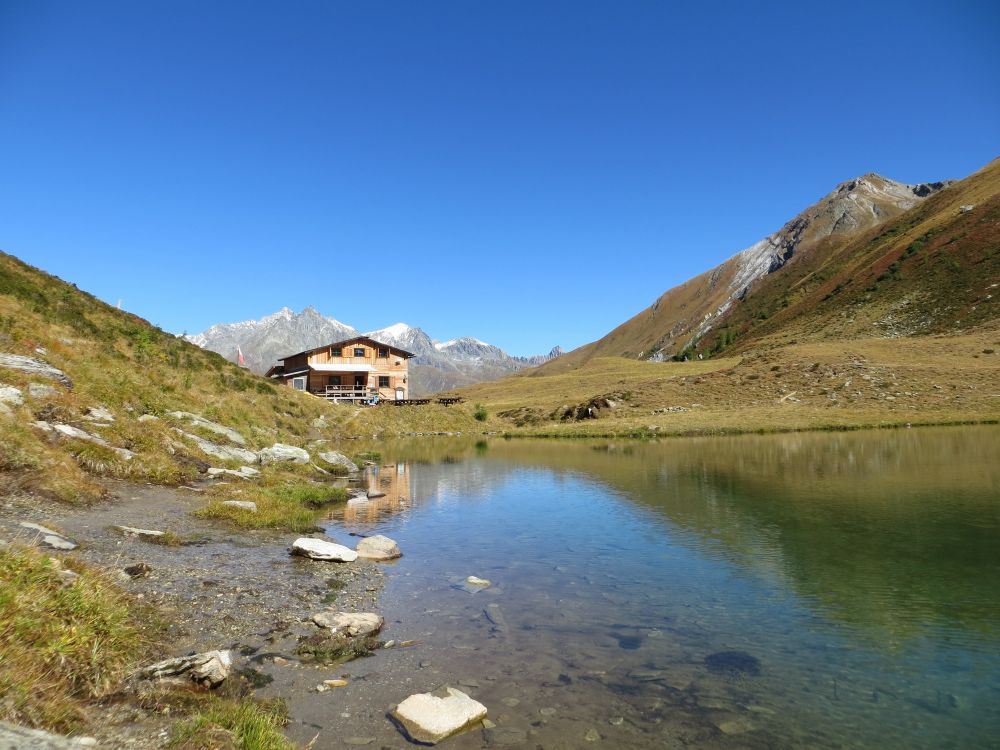
East Tirol – Bergersee lake in the Virgental valley
East Tirol offers visiting hikers sublimely beautiful and unspoilt landscapes ideal for exploring on foot. The national park region is particularly popular, with the Grossglockner mountain as the main attraction, while the peaceful peaks of the Villgraten mountains and the Defereggental valley bewitch visitors with gorgeous mountain lakes. One of the high points on the Lasörling high-altitude trail is the Bergersee lake with the eponymous mountain hut at an altitude of 2181 m. The shortest route up leads from Prägraten through Zopatnitzen valley and the romantic Zopatnitzen gorge, reaching Bergersee lake and mountain hut after around 2 hours. Even more beautiful is the route from Prägraten to the alpine pastures of Lasnitzen via the Muhs panoramic trail. This offers unique views of the entire glacier and mountain landscape, with hikers reaching Bergersee lake in around 3 hours.
Wilder Kaiser – Hintersteinersee & Astbergsee lakes
Lake Hinterstein is a mountain lake in the Wilder Kaiser nature conservation area and is part of Scheffau municipality. The lake has a surface area of around 56 ha and lies at 883 m altitude. At 36 m, it is unusually deep and is fed with crystal clear water from underground sources. The lake can be circumnavigated on foot. Allow around an hour to complete the walk and arrive back at your starting point – or a little more if you intend to stop at one of the snack bars en route. Hintersteiner See lake is also the start and end point for numerous hikes and mountain treks. To discover the full beauty of the mountains, we recommend doing the 3-day hut-to-hut trek at Wilder Kaiser.
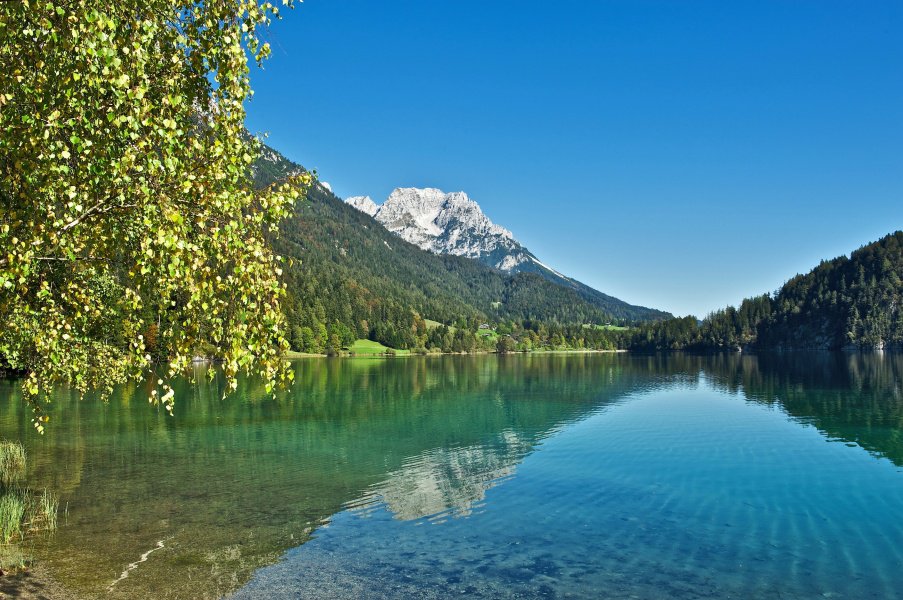
Astbergsee lake
Situated approx. 1200 m altitude, the Astbergsee lake on Astberg mountain near Going offers stunning views of the Wilder Kaiser range. On calm days you can even see the peaks reflected in the water. An easy hike around the lake and numerous benches invite the visitor to enjoy the surroundings, listen to the birdsong and other sounds of nature, and to enjoy the peace and relaxation this unique location offers.
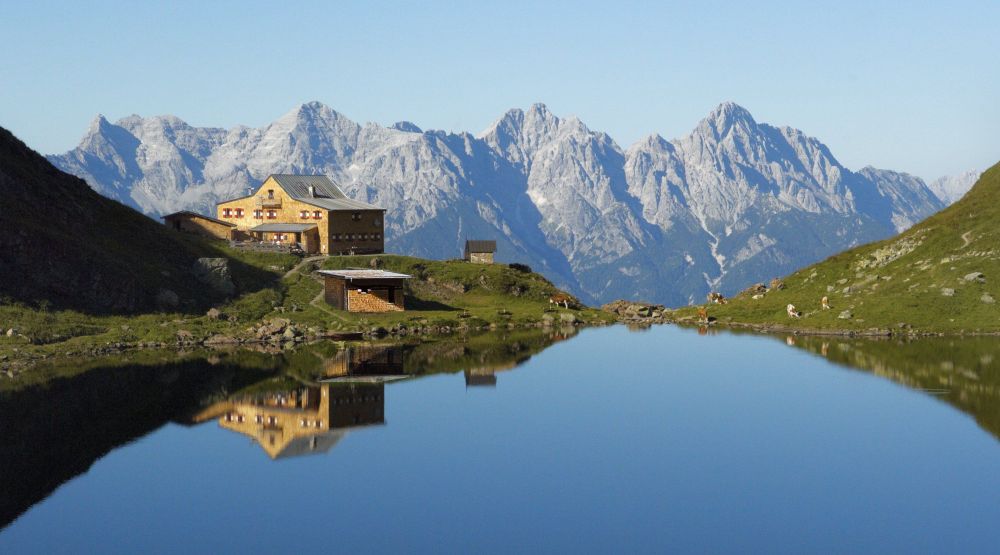
Pillerseetal valley – Wildseelodersee lake
In the Pillerseetal valley of the Kitzbühel Alps lies the deep blue Wildseelodersee lake, cradled between the peaks of Wildseeloder (2118m) and Henne (2078m) mountains. According to a local legend, a group of boisterous men and women charged with tending the cattle on their alpine pastures vanished beneath the waters of this beautiful lake high above Fieberbrunn after indulging in ungodly bowling games with cheese wheels and butter balls. It is said that far below, in the Hörndlinger Graben gorge, the cries of the drowned can still be heard at a small waterfall known as the “wailing fountain”. An ideal way to explore the lake is with the rowing boat moored at the jetty below Wildseeloder House.
Zireiner See lake in the Rofan mountains
As the name suggests, the lakelands of the Alpachtal valley offer wonderfully rich natural scenery. Rare plants, idyllic alpine plateaus and Zireiner See lake – the blue eye of the Rofan mountains – all form part of the Lake Zirein trail. The lake can be reached via a 2.5 hour ascent from the top station across the Rosswies plateau. Zireiner See lake is tucked away among the imposing peaks at 1799 m altitude.
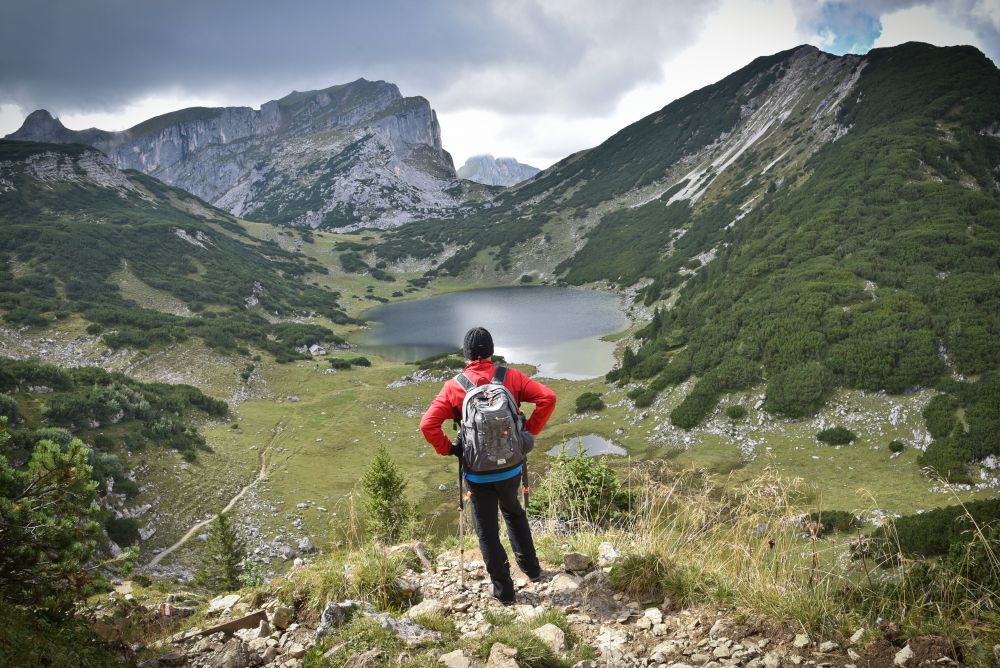
Mountain lakes in Styria
Zirbitzkogel-Grebenzen nature park – Auerlingsee lake
Surrounded by beautiful woodlands, Auerlingsee lake lies at the foot of the Grebenzen range. Formed during the ice age, this unspoilt resting spot is a romantic start point for hikes into the Grebenzen mountains. The lake also offers an opportunity for a refreshing dip, with water temperatures in summer reaching between 18 and 22 °C.
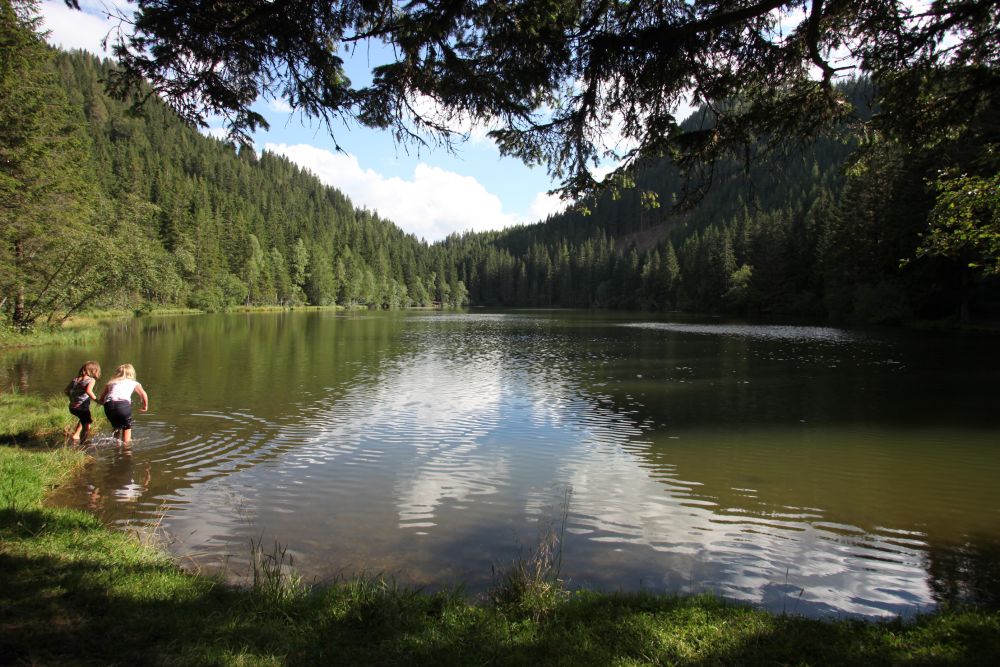
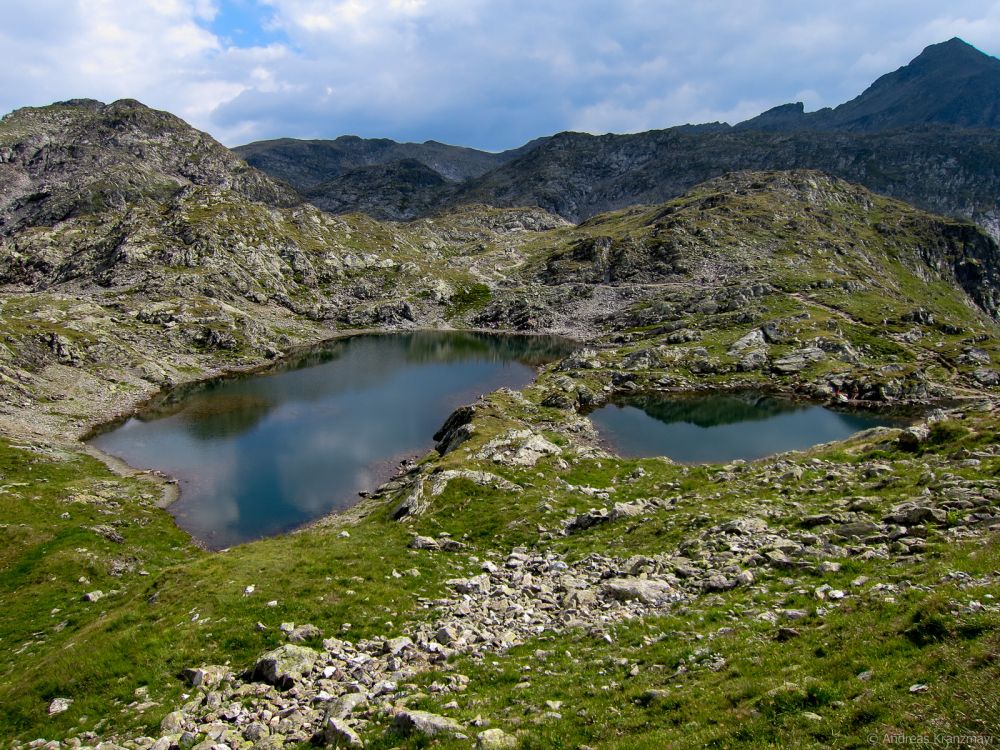
Schladming – Oberer Klaffersee lake, Duisitzkarsee lake & Giglachsee lakes
The Schladming region lake district includes more than 30 lakes of various sizes, all at around 2300 m altitude. The last leg of the “Wild Water Trail” takes you to the Klafferkessel plateau, a relic from the ice age. This hike across the high-alpine landscape counts among the most beautiful tours in the Schladminger Tauern range. The lakes are often covered with ice until mid July. The largest lake on the Klafferkesseltour is the Oberer Klaffersee lake, which is more than 30 metres deep.
Duisitzkarsee lake
Duisitzkarsee lake in the Obertal valley of Schladming is idyllically situated and is probably one of the most beautiful lakes in the Schladminger Tauern range. Especially in autumn, when the lake surface is often as smooth as a mirror, it’s a wonderful location for taking photographs, with the golden yellow larches reflected in the water. During the warmer summer months – July and August – those brave enough can also swim in the lake. Duisitzkarsee and Farlech mountain huts are both situated by the lake, offering local delicacies and a pleasant break. As early as 1300 to 1500, when quarrying in the Schladminger Tauern was in its heyday, the mountain huts on the Duisitzkar were run as businesses and used by the miners for accommodation. Since 1949, the huts on Duisitzkarsee lake have been offering refreshments to hikers.
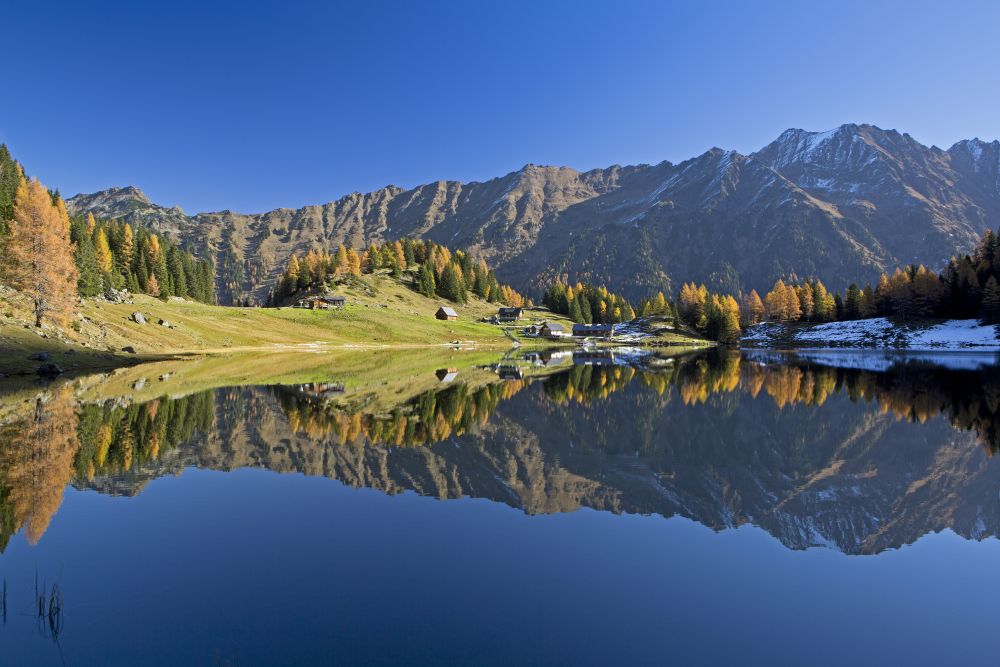
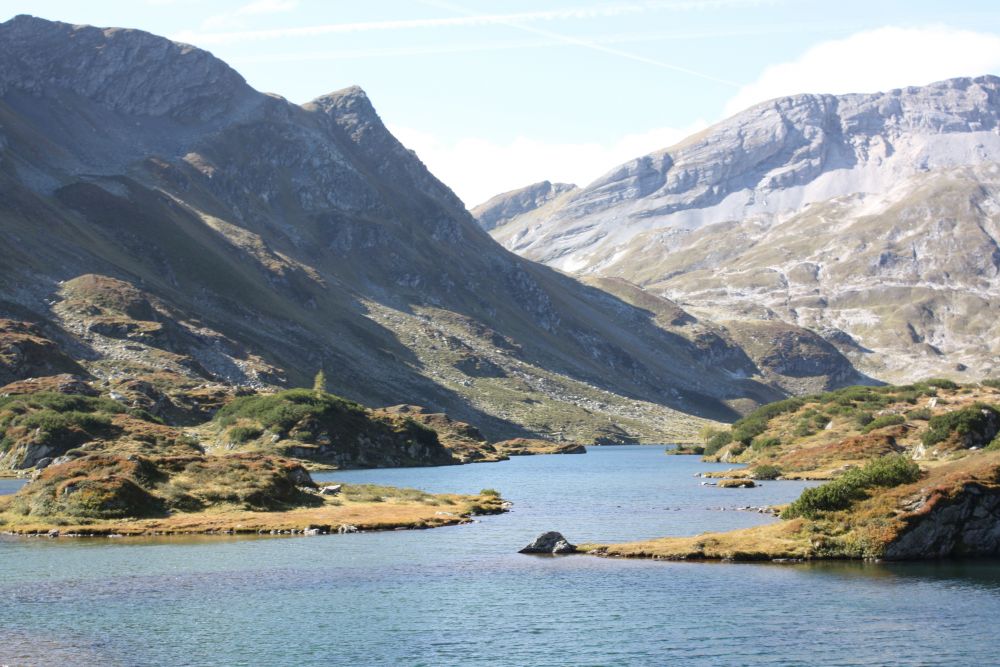
Giglachsee lakes
The two Giglachsee lakes (Unterer and Oberer Giglachsee lake) count among the most popular hiking destinations in the Schladming hiking region. The Unterer Giglachsee lake lies at 1921 m altitude and, with a surface area of 16.5 ha, is significantly larger than the Oberer Giglachsee lake with its 3.5 ha. This idyllic corner of the Schladminger Tauern range is also home to two mountain huts – the Ignaz Mattis Hütte on the north shore and the Giglachseehütte at Preuneggsattel. Both offer food and accommodation. One of the area’s most popular hikes is the lakes tour, which starts out at Ursprungalm, takes in the Giglachsee lakes and ends up at Duisitzkarsee lake.
Mountain lakes in Vorarlberg
Austria’s most beautiful location: The Formarinsee lake in Lech Zürs am Arlberg & Zürser See lake
Situated at 1793 m altitude and with a surface area of 15.9 ha, the emerald green Formarinsee lake in Lech Zürs am Arlberg shines like jewel. A hike to Rote Wand mountain takes you past Austria’s most beautiful spot. Any visitor to this area can tell that this place has a mystical-magical quality and really is one of Earth’s little treasures. Formarinsee lake is reformed every year as a meltwater reservoir – the lake’s run-off is underground.
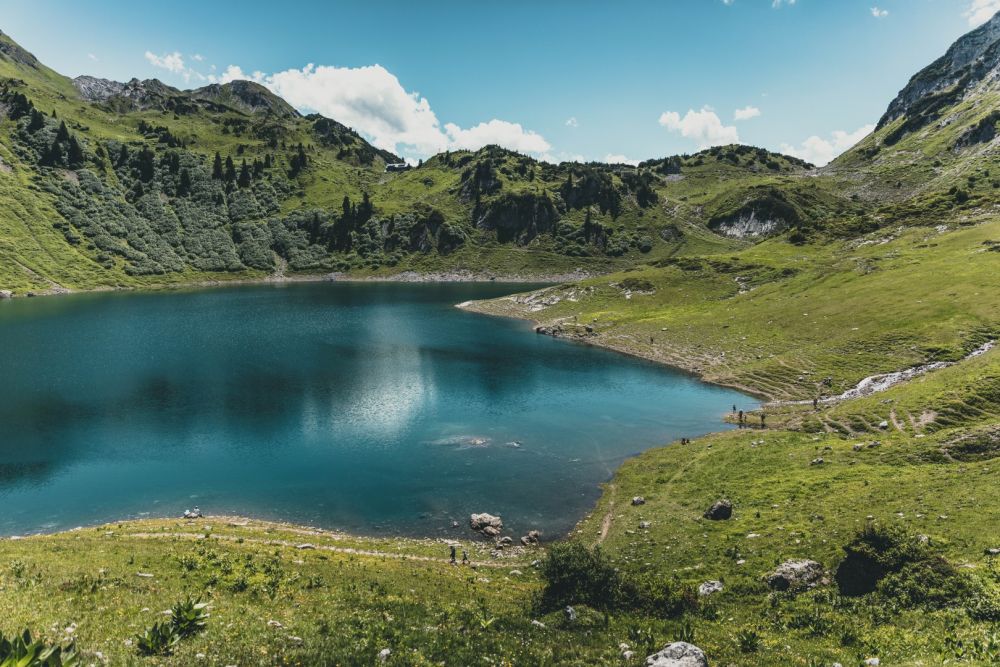
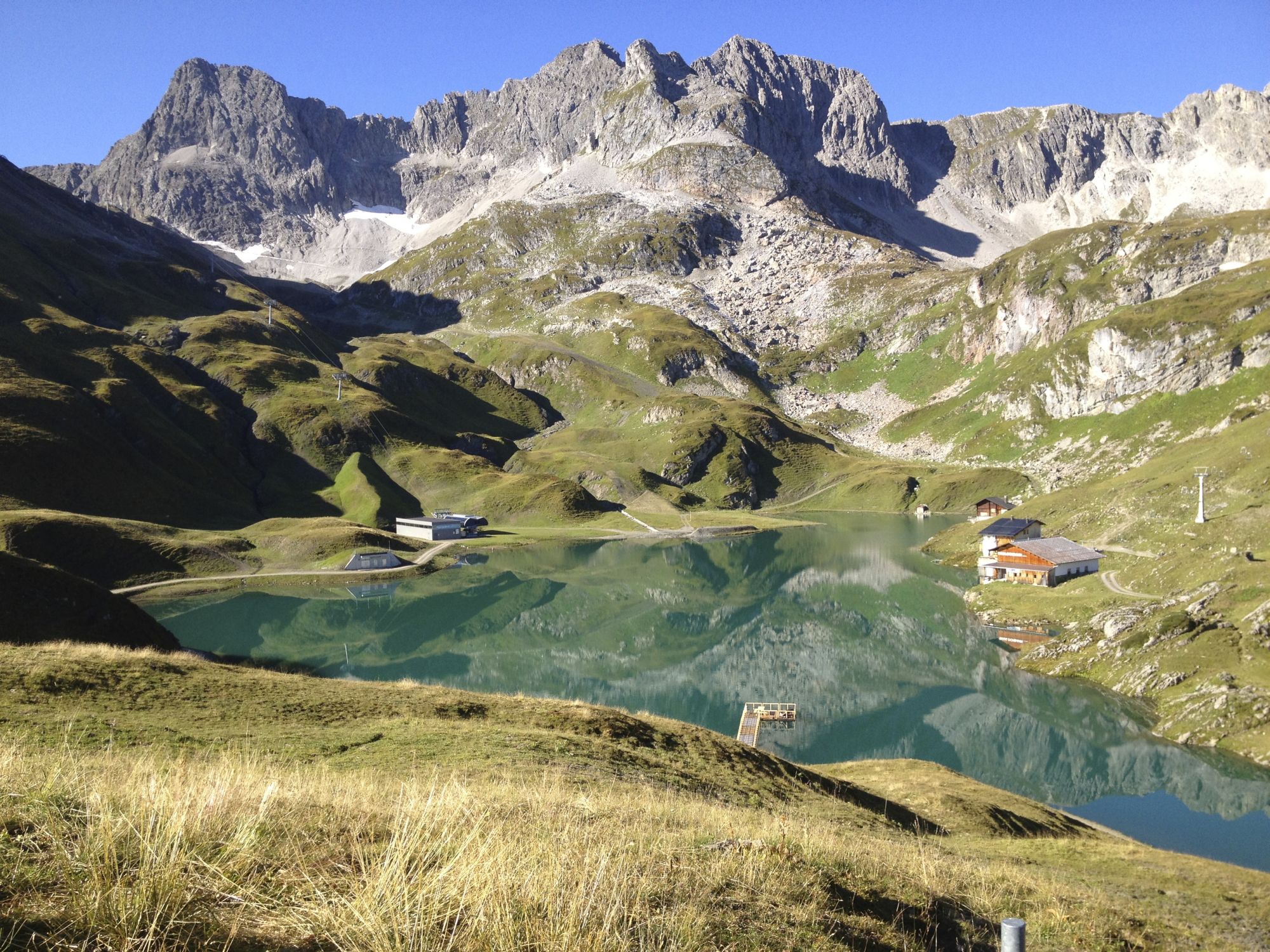
Zürser See lake in Lech-Zürs
Nestled among the Lechquellengebirge mountains in the hiking village region of Lech Zürs lies Zürser See lake. At 2160 m altitude it serves as an attractive intermediate destination on the second leg of the Green Ring tour. The naturally formed mountain lake features a wide wooden jetty that leads to a wooden platform in the lake. Equipped with wooden loungers, it invites visitors to admire the wonderful mountain reflections in the clear water.
Warth-Schröcken – Körbersee lake
In the 2017 TV programme “9 Plätze, 9 Schätze” (9 locations, 9 treasures), Körbersee lake was voted Austria’s most beautiful location. Situated in Schröcken, at 1675 m altitude, this gem of nature has a surface area of 3.5 ha and is up to 8 metres deep. The lake is even suitable for swimming during summer, when the water temperature can reach 24 °C. If you’d like to learn more about Körbersee, you may want to ask about the legend that surrounds this mountain lake.
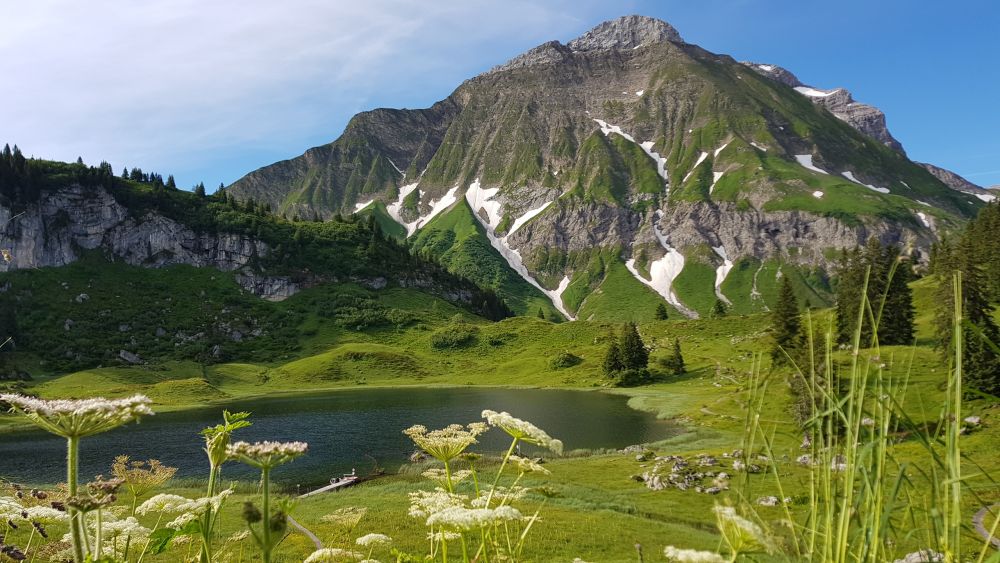
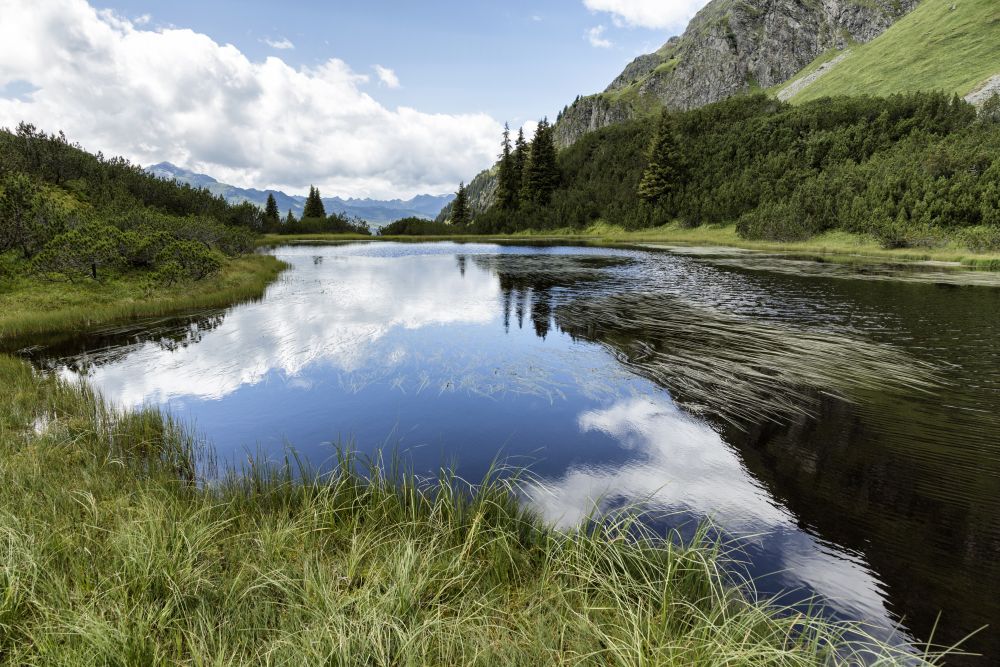
Take the Tafamuntbahn cable car to Wiegensee lake
Wiegensee lake in Montafon is surrounded by 65 hectares of moorland. At 1900 m altitude, the area forms part of the Natura 200 reserve and is internationally renowned. Please note that due to the special status of this moorland, deviating from the hiking trail is strictly prohibited! There are several benches located around the lake, inviting visitors to rest awhile and enjoy the glorious panoramic views.
Mountain lakes in Salzburg
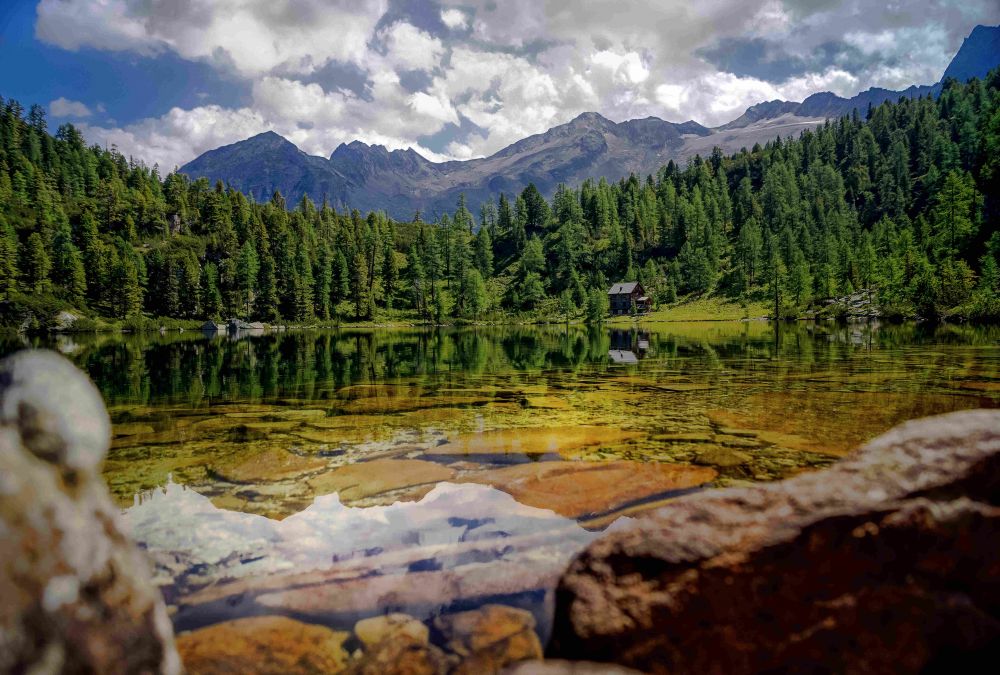
Hohe Tauern National Park Salzburg – Reedsee lake
The hike starts out by following a forestry track towards Prossau. After ascending for more than two hours, the iridescent deep blue waters of the Reedsee mountain lake (1831 m) come into view. Situated in Gastein, the lake is surrounded by trees, mosses, flowers and cotton grass. The cabin by the lake serves as a base for the Apline Club and is not open to the public. Therefore always bring along sufficient provisions. With a bit of luck, you will be gazing at the magical reflections of trees, mountains and glaciers in the still waters of the lake.
Seebachsee lake
Located in the Hohe Tauern National Park, Seebachsee lake is nestled into the Obersulzbachtal valley by Neukirchen am Grossvenediger and is an insider’s tip among mountain enthusiasts. Around 1000 sheep graze here over the summer months. The circular trail to Seebachsee lake starts at Hopffeldboden car park in the Obersulzbachtal valley by Neukirchen am Grossvenediger. Information boards along the way provide details on the typical larch, pine and spruce forests, Seebachsee lake and the Seebachalm pasture land, as well as Großer Geiger, the landmark mountain in Obersulzbachtal valley. We recommend making the ascent via Seebachalm. For the descent, head to Berndlalm via the “Monau” and continue to Kampriesenalm. From there head back to Hopffeldboden car park. This is a moderately difficult hike, please allow around 5.5 hours hiking time for the full circuit.
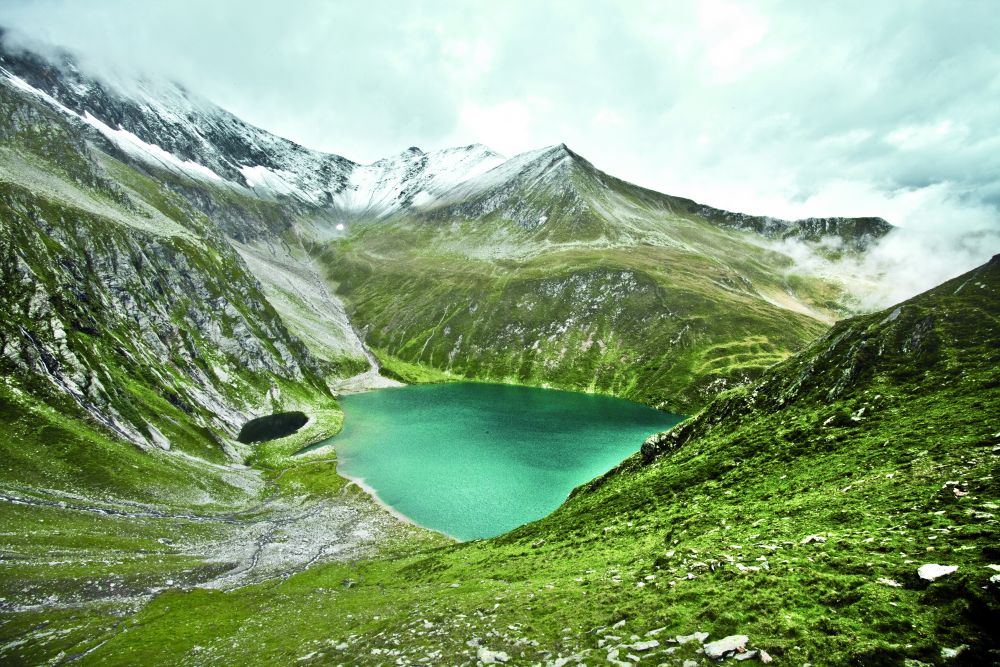
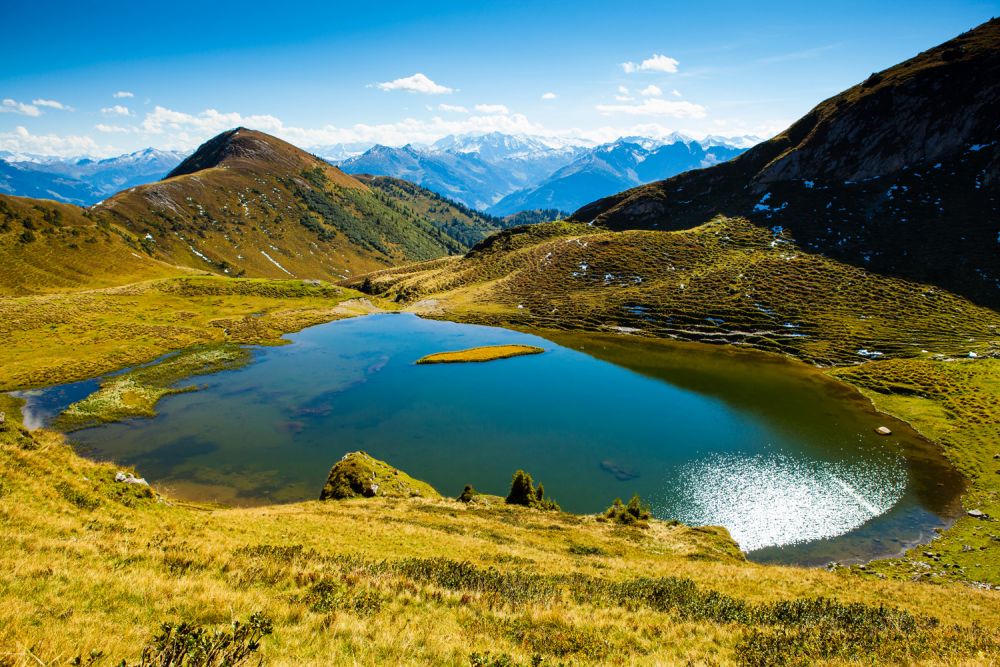
Hochkönig region – Hundsteinsee lake
Hundsteinsee lake, situated on the summit of one of Europe’s highest grass-covered mountains, promises truly breathtaking panoramic views of the Hochkönig region. The well-tended trails draw numerous hiking enthusiasts up to Hundsteinsee lake every year, which lies at 2117 m altitude. A mountain hut completes the visitor experience – the Statzerhaus, a mountain refuge, has been open to the public all year since 1892.
Wagrain-Kleinarl – Blauer See lake
Surrounded by wild and romantic hiking trails and breathtaking vistas, the smallest mountain lake in Wagrain-Kleinarl lies on the slopes of Ennskraxn mountain – the landmark mountain of Kleinarl. Steep rock faces rise from the lake shore to the summit. It’s not the size of Blauer See lake that makes it memorable, it’s the special location and the unique landscape around it. Another distinctive feature is its varying size, with the lake sometimes shrinking away entirely by the end of the summer. This is because Blauer See lake is fed entirely by the snow-melt running off the mountain. A flood in 2017 led to the birth of two new mountain lakes in the proximity of Jägersee lake in Kleinarl.
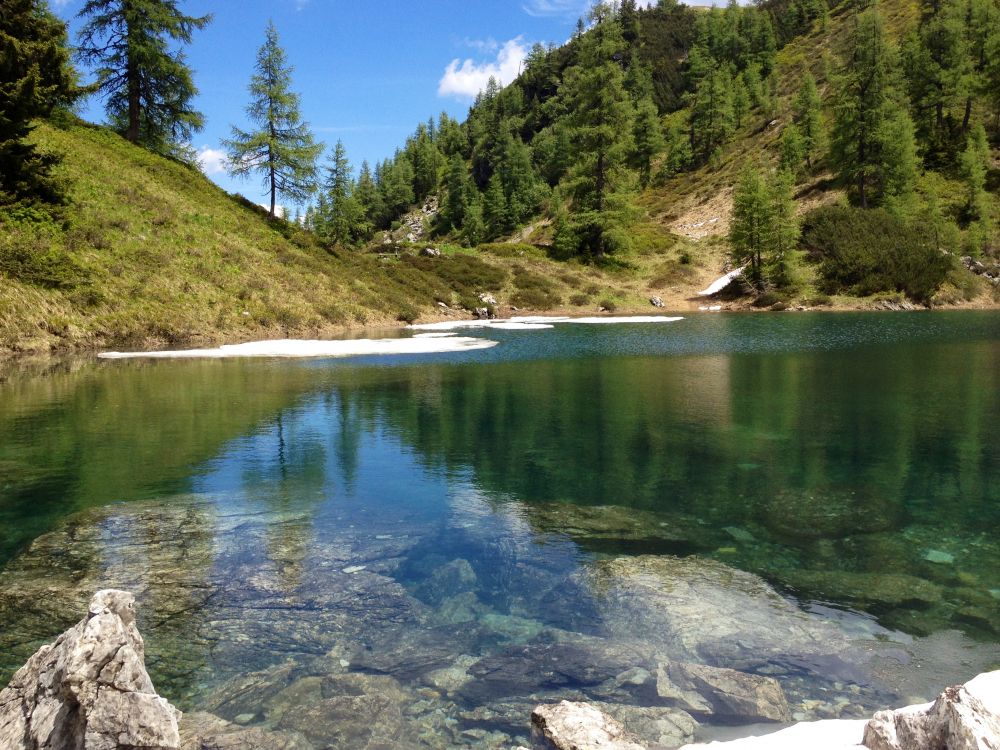
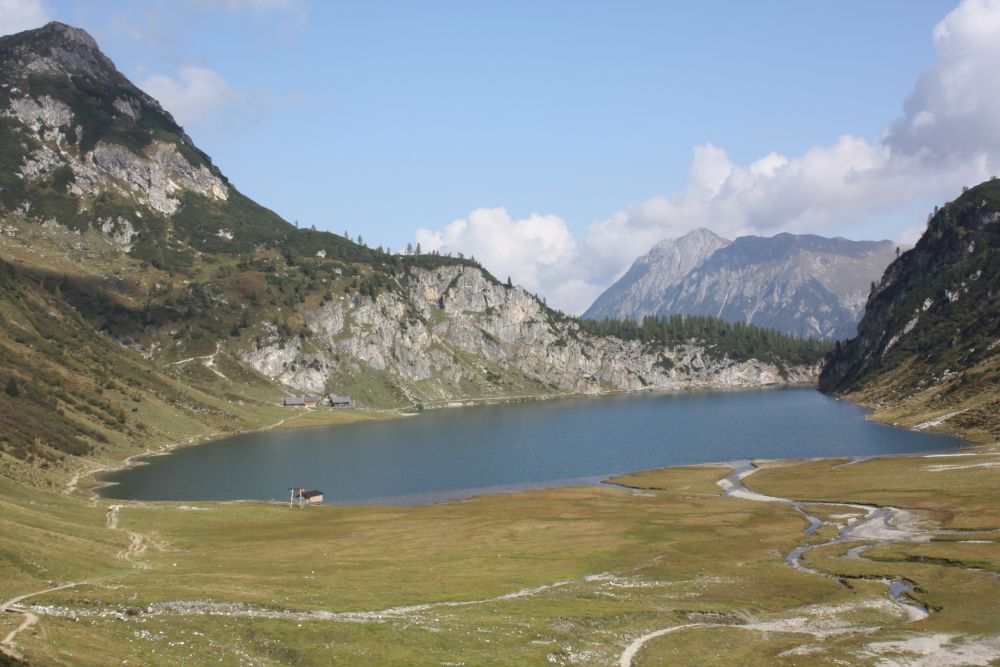
Tappenkarsee lake
Situated at 1762 m altitude, Tappenkarsee lake is one of the highest mountain lakes in the Eastern Alps. With a surface area of 23.8 ha it also provides plenty of space for the lindworm which, according to legend, lives in these waters. The lake is known for its superb water quality and the associated large number of fish it is home to. Tappenkarsee lake and the two mountain huts – Tappenkarseealm and Tappenkarseehütte located 50 m above the lake – are popular hiking destinations and can be reached from both Kleinarl and Grossarl hiking regions.
Tip: For a combined visit to the lakes of Tappenkarsee and Jägersee we recommend the 2-lakes tour.
Mountain lakes in Carinthia
Hike to Wolayersee lake
Wolayersee lake and Wolayerseehütte hut (Eduard-Pichl-Hütte hut) are in the Carnic Alps at 1960 m altitude. There are a number of routes for hiking to the lake, the shortest of which starts at Plöckenpass near lower Valentinalm. From there, the lake can be reached in around 3 hours.
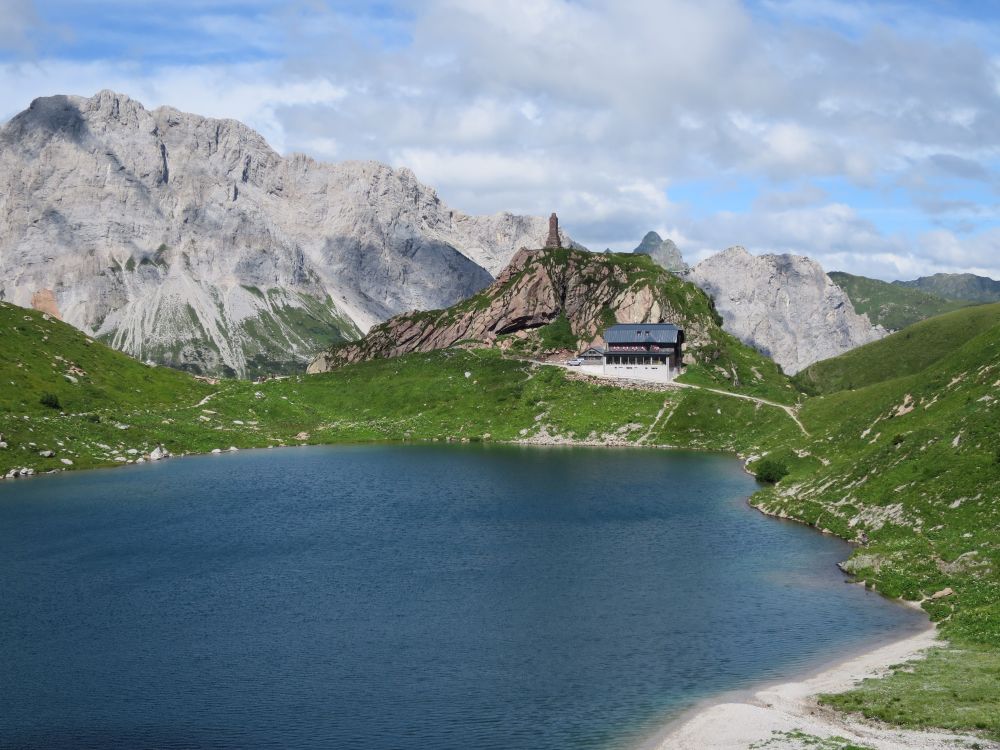
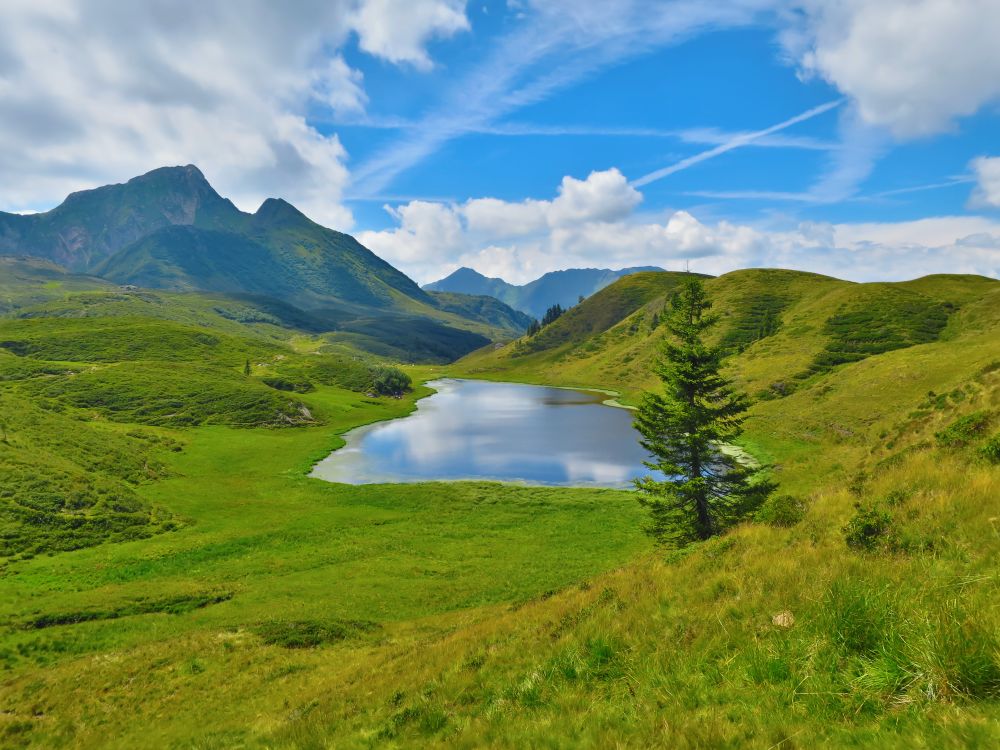
Zollnersee lake geotrail
Many know Zollnersee lake from photographs and wonder where this gem can be found. Starting at the Zollnerseehütte mountain hut, the lake and the surrounding alpine pastures can be reached on foot in half an hour. The region also offers many other attractions, including the Zollnersee geotrail in Dellach in the Gailtal valley – an experience for all the family.
